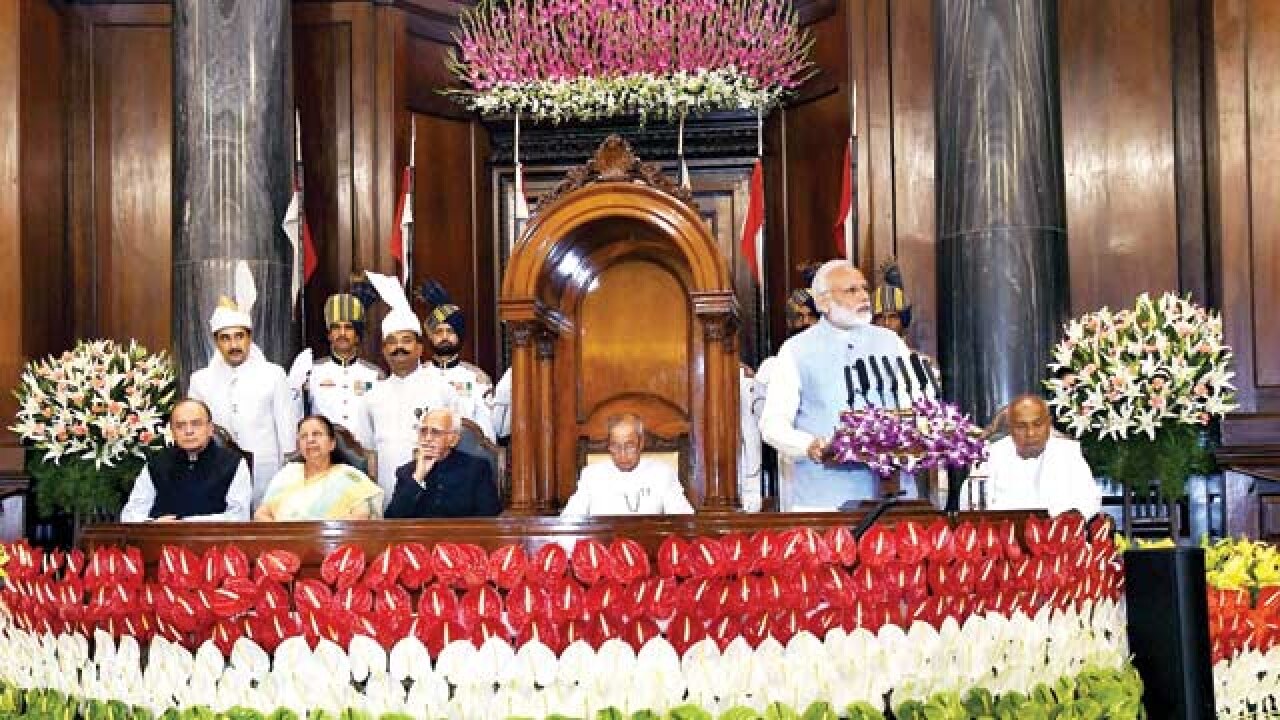
On June 30, as the countdown to the Goods and Services Tax (GST) regime began, the media and opposition went into a frenzy. There were endless studio debates on the “protests on the streets”, the coming catastrophe, how the IT backbone for GST was not ready, and how a confounding new indirect tax system was being forced down an unwilling country.
Some Opposition parties used the opportunity to denounce and mock a GST mechanism, including an ideally avoidable multiplicity of tax slabs, to which state governments headed by these very parties had agreed as members of the GST Council. They announced a boycott of the inaugural event at midnight on June 30-July 1 in Parliament.
Depending on which television channel you were watching and which Congress spokesperson you heard, you got different interpretations of why the Congress was absenting itself from Parliament, and from a GST launch to which it had contributed so much. The unfortunate and disappointing truth is the Congress — egged on by a non-playing vice-captain who occasionally tweeted his stray thoughts from a European holiday — decided to act in concert with maverick political groupings such as the Trinamool Congress and the CPI(M).
Manohar Parrikar, the chief minister of Goa, compared the GST fear psychosis being generated by some sections to the Y2K phenomenon that so engrossed public debate in 1999. There were other precedents. National politics and policy action has often seen such theatrical response from Opposition parties, armchair activists and media pundits who should know better.
Take some examples. Between 1992 and 1994, the Dunkel Draft, which became the framework of the agreement that founded the World Trade Organisation (WTO), was the subject of over-the-top criticism in India. The PV Narasimha Rao government was accused of selling out. There were concerns that WTO and globalisation (the term was just about entering popular discourse then) would wipe out the Indian economy.
The Left was on the streets, predictably, as was the BJP. The BJP was divided between economic protectionists in its ranks and economic reformers who were upset that the Congress was taking up reform since 1991, and in a sense stealing the BJP’s professed USP.
What happened subsequently? India became one of the biggest gainers of the multilateral trading order that was ushered in by WTO on January 1, 1995. When the BJP came to office in the late 1990s, far from reversing India’s accession, it made India’s compliance with international trade regimes stronger. Its previous opposition was an embarrassing memory.
In 1998, shortly after becoming the prime minister, Atal Bihari Vajpayee ordered the Pokhran II nuclear tests. Here it was the Congress response that was tetchy, insisting the groundwork for the nuclear programme had been done by Congress governments and that the Pokhran I tests of 1974, under Indira Gandhi, were somehow morally superior.
A decade later, the shoe was in the other foot. From 2005, the Manmohan Singh government began the process of negotiating a nuclear deal with the United States that would allow India access to nuclear energy and other sensitive technologies while creating an exception for its nuclear weapons. This was a logical outcome of the Pokhran II tests, which had brought India’s nuclear-weapons status into the open, and the outreach to the US that was accomplished by the Vajpayee government.
This time the BJP was cussed. This was a deal its government should and would have done, had the 2004 election seen a victory for the NDA. Since that hadn’t been the case, the BJP responded with sour grapes, made common cause with the Left and validated wild charges of how India’s sovereignty would be violated and American nuclear inspectors would have free access to the heart of India’s nuclear defence programme.
In all three cases, the Opposition parties eventually had to adopt another stance in government. The BJP took India’s WTO engagement further. The Congress built on the gains of Pokhran II, having dismissed it as irresponsible when it had happened. The BJP (the Narendra Modi government) embraced the nuclear deal that it had earlier challenged and has sought to operationalise it, albeit unsuccessfully so far. In all three cases, the Opposition misread the public mood and the broad identification with the new route the government of the day was attempting.
This is exactly the mistake the Congress has made in its exaggerated outburst against GST. If there is no GST crisis and rollout is broadly incident-free, how will the party explain itself in 2019?
The author is distinguished fellow, Observer Research Foundation. He can be reached at malikashok@gmail.com